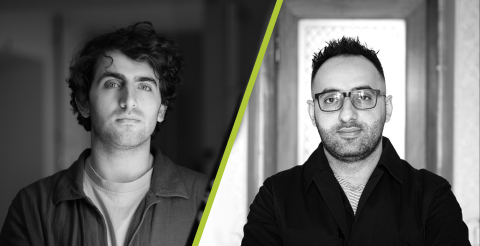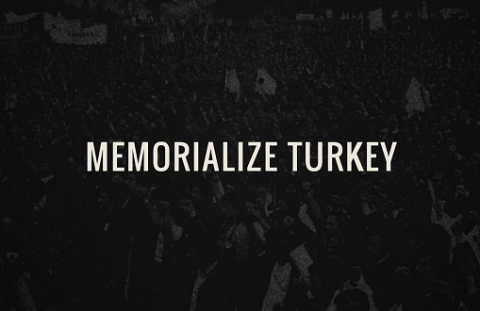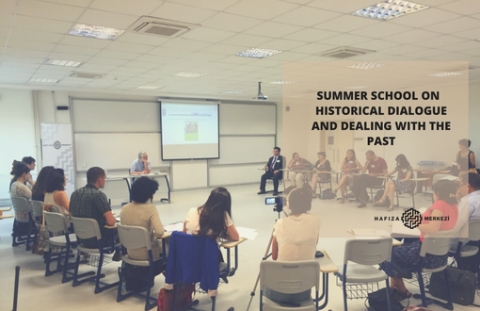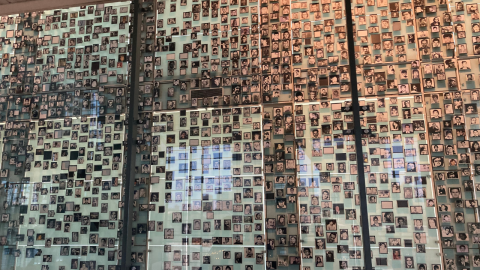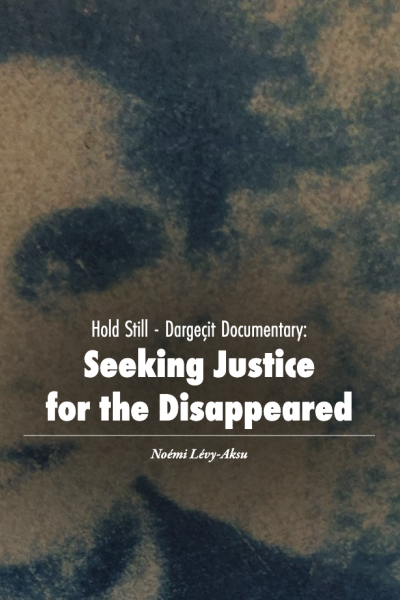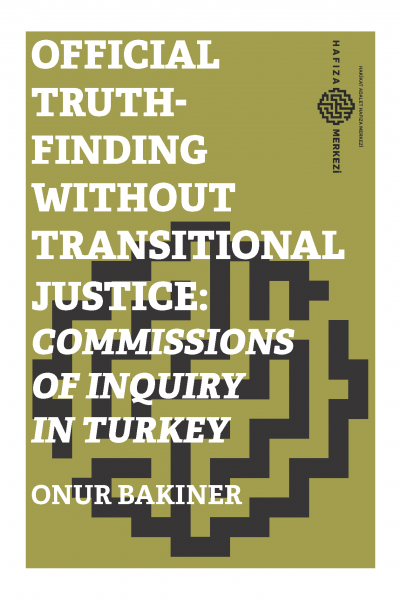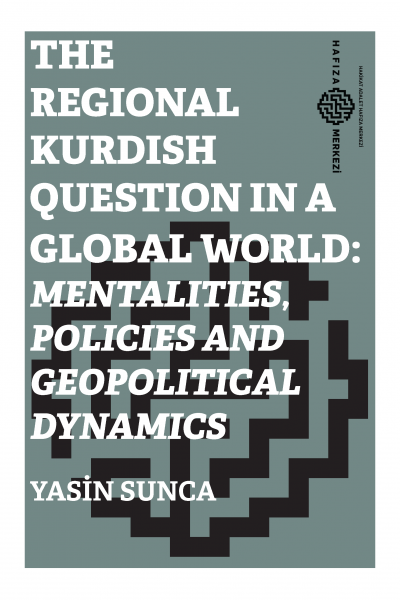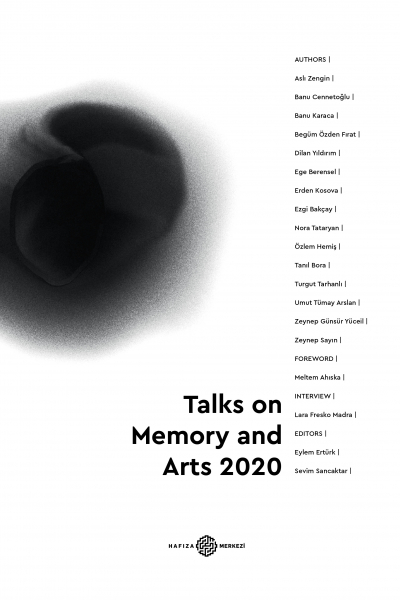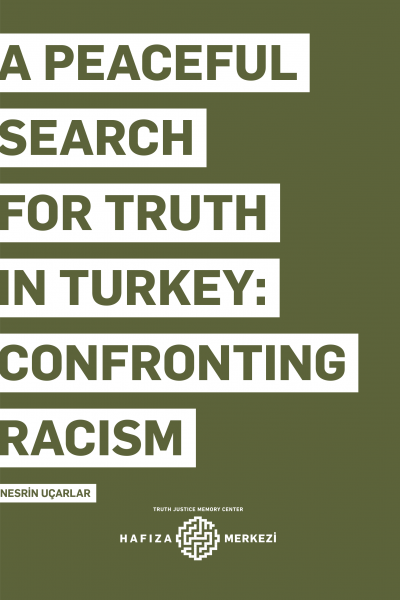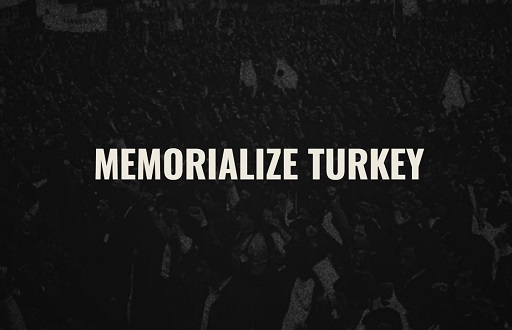
https://memorializeturkey.com/en/
Being a compilaton of memorialization projects in Turkey, Memorialize Turkey aims to start a dialogue around different forms, scopes and functions of memorialization in Turkey. The listed memorialization projects are in relation to the many groups and individuals that have suffered harm or grievance over the past 100 years in the late Ottoman Empire and the Republic of Turkey, which take different forms including memory walks, digital memorials, museums and exhibitions, parks and memorials, books and movies.
Memorialize Turkey started in 2013 as a collaboration between the World Policy Institute in New York, the Fetzer Institute in Kalamazoo, Michigan, and Hafıza Merkezi in Istanbul. The initial project idea was suggested by Belinda Cooper, World Policy Institute, after attending Hafıza Merkezi’s workshop on Memorialization in December 2011, İstanbul. It was to compile efforts of memorialization led by different actors that contribute to the democratization of the memory space in Turkey dominated by an exclusive, nationalist and one-dimensional conventional national memory. To explore further the questions surrounding memorialization and the ways in which it can contribute to human rights activism and the struggle for a full-fledged democracy that came up during this first workshop, we organized a follow-up workshop in Mardin in February 2013. We brought together participants from various political initiatives, representing different ethnic and religious identities that actively worked in memorialization efforts. We also invited experts on memorialization from Germany, Israel, and Bosnia, three countries representing different experiences of dealing with the past and contested histories. This website, thus, started as an outgrowth of these workshops.
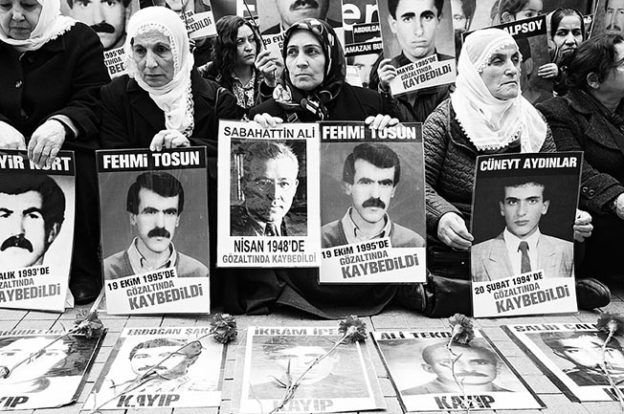
Saturday Mothers / People
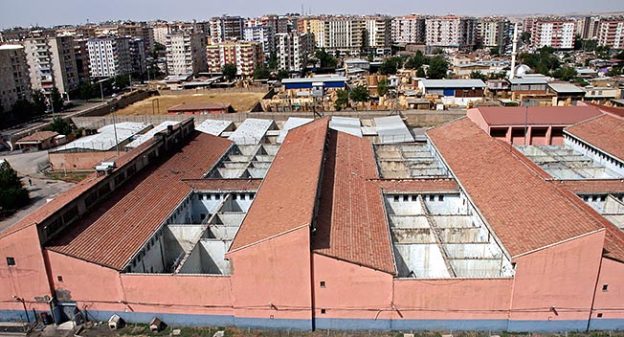
Diyarbakır Prison Campus
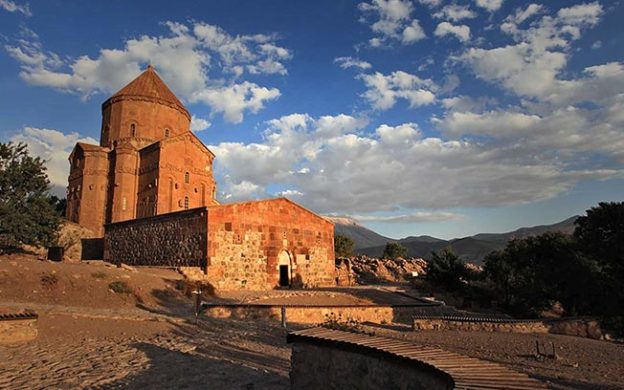
Akhtamar Church
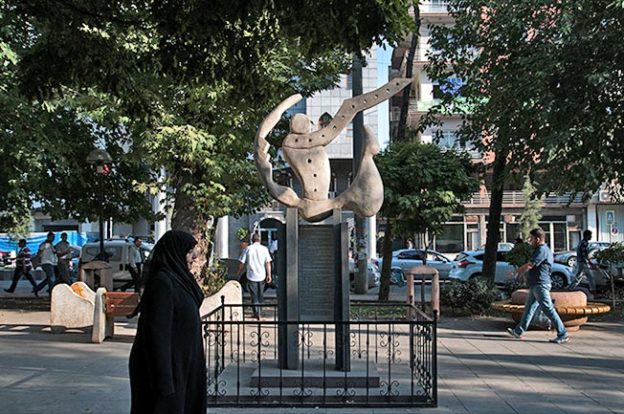
Memorial on Ugur Kaymaz
In its first version started in 2013, it provided information on 26 projects throughout Turkey, seeking to address historical atrocities that have been denied, repressed, or misinterpreted. These initiatives were mostly physical memorial projects, using rather typical forms of memorialization such as statues, temples, parks, monuments and former prisons.
In the following years, as Hafıza Merkezi we started to engage with new technologies and creative methods that aimed to render memorialization efforts more appealing and accessible for younger generations. We organized public panels on the role of new mediums like gaming and virtual reality for telling stories and disseminating alternative narratives on gross human rights violations and dealing with the past. Also, we invested on improving the creative storytelling capacities of human rights NGOs, building working collaborations between them and agents of creative disciplines. As we became more engaged with novel techniques and methods of truth telling during 2018 and 2019, our focus on memorialization has diversified. In this context, in order to highlight our recent focus on the changing landscape in memory initiatives, we decided to compile a new selection of 12 cases. Accordingly, the website now covers 38 projects, which can be filtered in their forms and ownership.
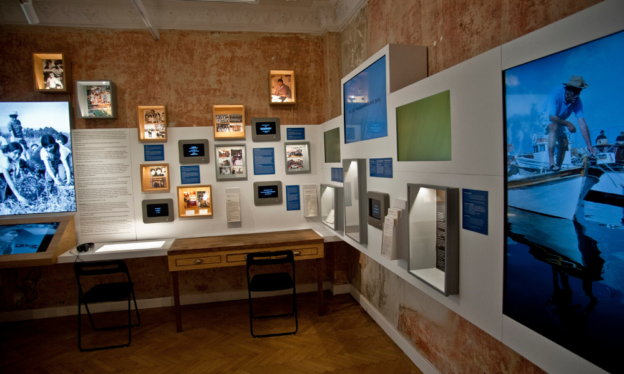
23,5 Hrant Dink Site of Memory
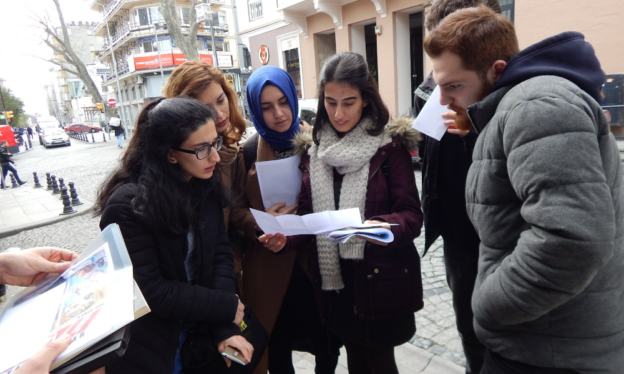
Karakutu Memory Walks
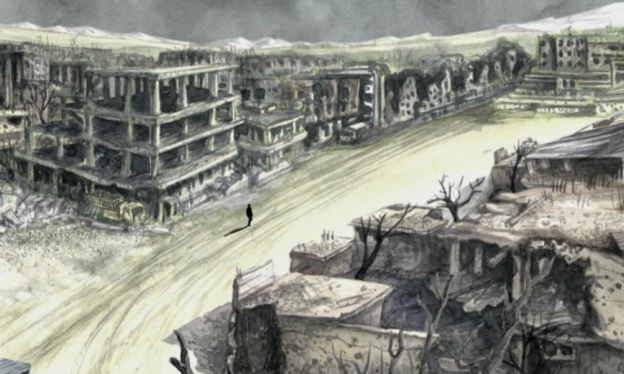
Kavil: In the Ruins
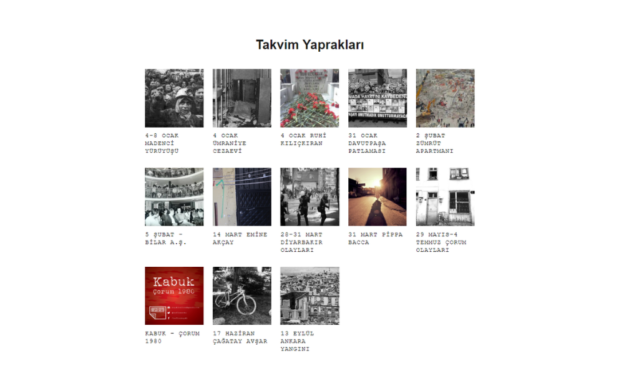
Hafıza Kaydı: In Search of Mutual Stories
Background
Turkey has a controversial past with forms of state violence, represented by a one-sided and rigid conventional national memory. Alternative memory narratives have been brutally repressed, denied or manipulated in the long history of memory conflicts. This rigid picture, however, began to change at the commencement of the 2000s, and a new memory space, a contentious political, cultural and symbolic space, opened up when the discourse of democratization and accession to the European Union was high on the official agenda. One can even talk about a memory boost in the context of the post 2000’s Turkey. Different contentious groups, initiatives and platforms flourished on how to interpret the dominant narratives of memory and the repertoire of state violence in Turkey. Several narratives of the past began to be disseminated in the public sphere by different competing political and cultural groups such as different Muslim and conservative groups and platforms, feminist initiatives and women groups, Kurds mobilized in the hinterland of the Kurdish political movement, radical leftists, nationalist and secular initiatives, Jew and Christian communities and divers LGBTIQ movement, which altogether formed contentious fragments of memory.
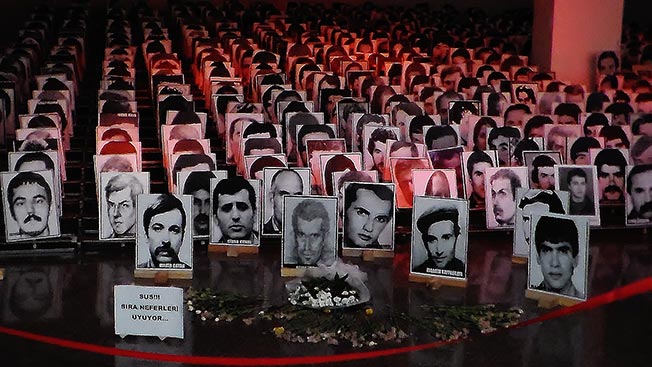
It would be wrong, however, to limit the memory boost solely with the initiatives occurred at the beginning of 2000s. Various political movements already established several memory initiatives in relation with their political commitment and struggle. Beginning by the end of the 1980s, therefore, different political initiatives were establishing an alternative memory scene where there were dealing with the past including themselves as a political actor. These groups, mostly related with different political organizations such as Kurdish political movement or feminist organizations, continued their struggle in the new conjuncture of the memory boost and diversified the alternative memory scene in Turkey.
The memory boost came under overwhelming pressure after the radical change of the political climate in Turkey. Following the blatant demise of the peace process in the context of the Kurdish conflict in 2015 and the failed coup attempt in 2016, the public space opened up in relation with alternative memorialization works, led by public institutions, civil society organizations or political initiatives, has been closed down. In Kurdish cities, memorials and parks built in times of peace were destroyed and renamed. Still, both more historical attempts of alternative memorialization and truth telling efforts such as Saturday Mothers/Persons or more recent memory initiatives such as memory walks organized by civil society organizations are ongoing. Also, in recent years, Turkey’s memory scene witnessed the rise of many independent memory initiatives. These projects were mostly based in digital spaces, either next to or instead of physical spaces, and were more innovative and participatory in their approaches.
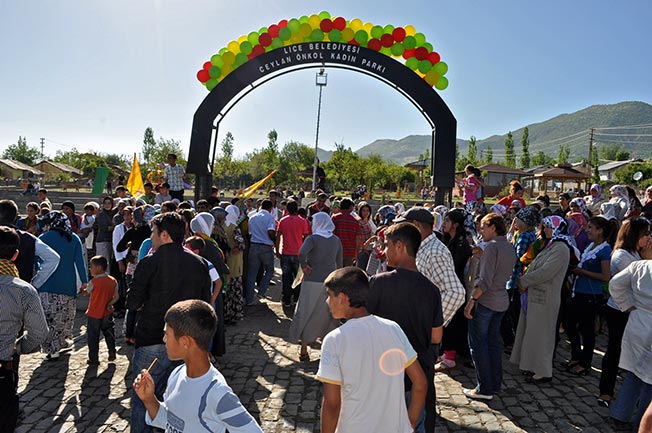
The park named after Ceylan Önkol in 2009 was renamed in 2017 by the centrally appointed trustee.
Methodology
This website covers 38 cases of memorialization initiatives. They are tagged by a classification of their owners and also by the medium that they are using. Accordingly, we identified 4 types of project owners: Central Government, Local Government, Non-Governmental Organization and Civil and Political Initiatives. Also, we defined 7 types of medium or form regarding the cases: Memory Walks, Digital Studies, Museums and Exhibitions, Monuments and Parks, Cultural Heritage, Commemorations, Books and Films.
This website neither claims to exclusively cover all the memorialization efforts, nor argues to include all different components of the memory scene in Turkey. Our aim is, rather, to provide a selected anthology of different memorialization efforts, which is open to contribution and collaboration. As it is already well known, memorialization is a primary means of presenting and dealing with narratives of difficult histories. Memorials, or public acts of remembering, may vary greatly in form: they may be statues, parks, or museums, or less permanent commemorations such as demonstrations, theatrical productions, traveling exhibitions. They may incorporate educational activities, shared learning and communication. They may take shape in digital spaces like digital memorials, online versions of books, city tours, as well as citizen collaborations in portals like Facebook. In this selection, our aim is to reflect all these different methods and approaches of the memorialization efforts in a broader spectrum.
Manipulated by political forces, memorials may emphasize grievances or glorify conflict, and thus encourage renewed hostility. But they may also serve a more constructive purpose by educating new generations, promoting reflection, healing, inclusion and reconciliation, and even serving as atonement. This aspect of memorialization, which contributes to peace and democratization, is what this website aims to present by the selection of cases.
This collection highlights positive examples of memorialization among the many groups and individuals that have suffered harm or grievance over the past 100 years in the late Ottoman Empire and the Republic of Turkey. The examples chosen highlight efforts that help to reinforce the idea of human rights, educate wider audiences about historical events that have been denied or suppressed, and ultimately promote understanding and reconciliation among the many ethnic, political and religious groups that make up Turkey’s multifaceted population. The current selected cases will be expanded.
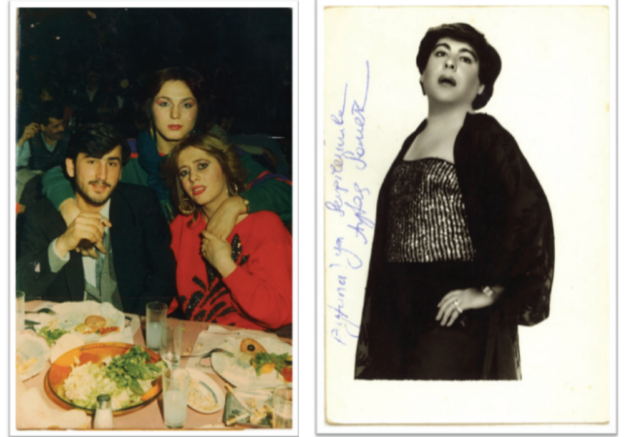
The Books “Being a Queer in the 80s” and “Being a Queer in the 90s”
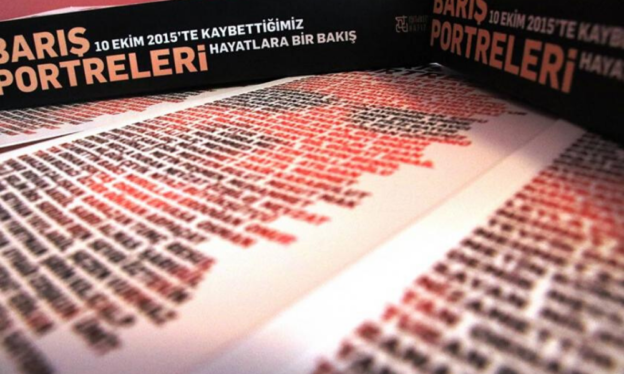
Peace Portraits: A Look at the Lives We Lost on October 10, 2015
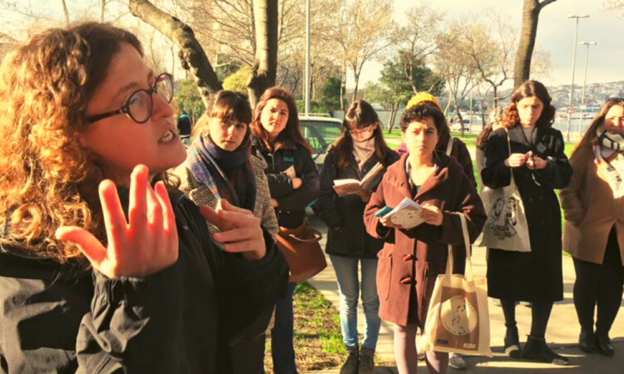
Curious Steps: Gender and Memory Walks of Istanbul
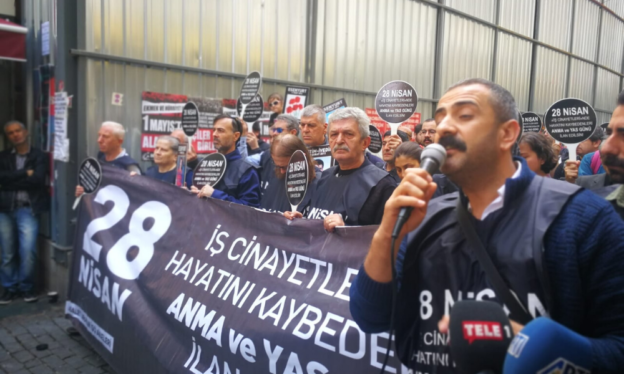
Conscience and Justice Watch
We are planning to supplement the content of the collection in the coming period. Our objective in doing this is to transform this web site into a platform for discussion with information and debate from around the world on memorials and their function and effects. In this way, we hope to promote the honest debate and engagement around memorialization issues.
